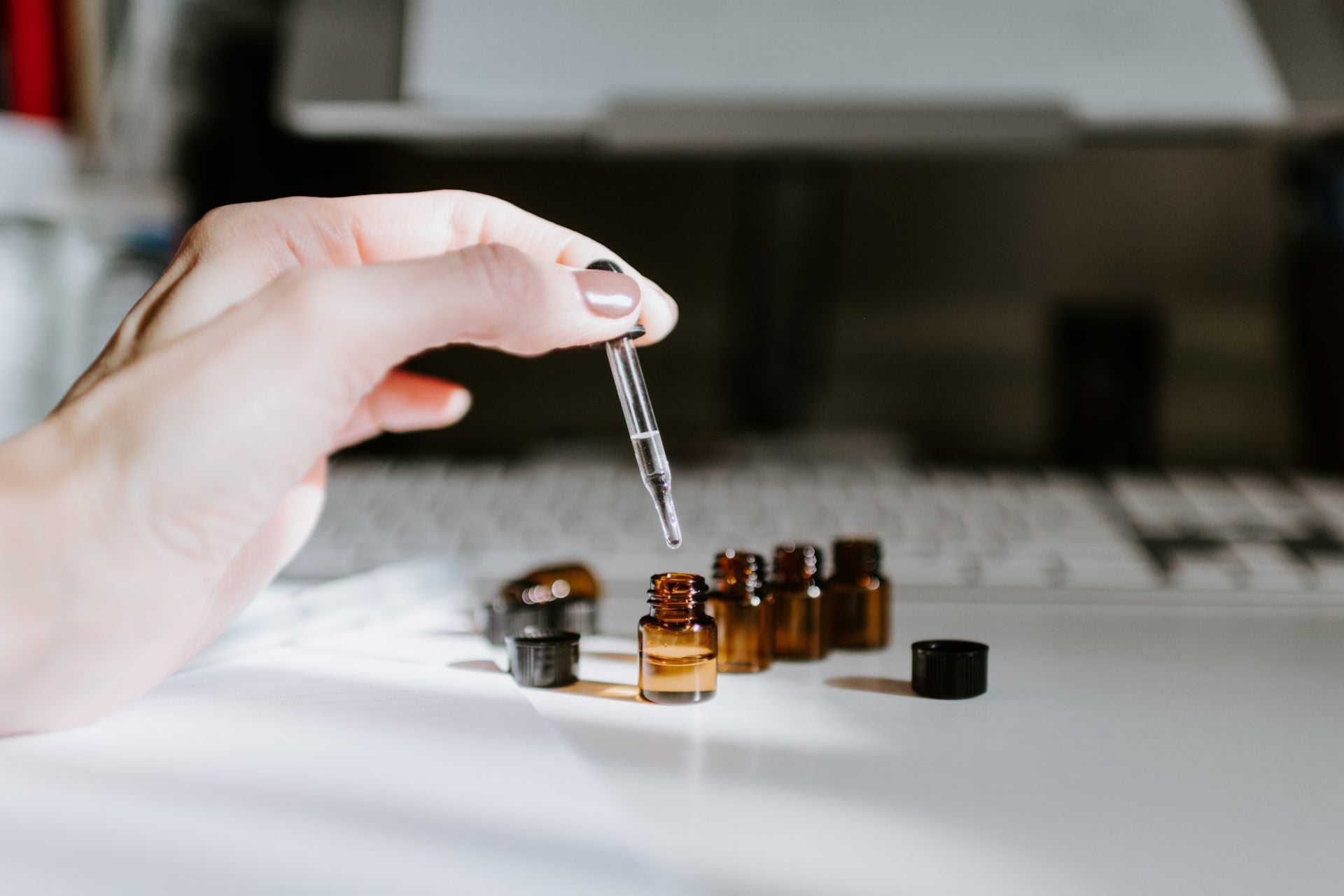Benefits of Copaiba Oil when used in Natural Deodorant
What is Copaiba Oil?
A powerfully relaxing essential oil, Copaiba comes from a fragrant, large tropical tree native to South America. Traditionally used since the 19th century as a healing and anti-inflammatory agent in Brazilian folk medicine, its pleasant and spicy aroma can be found in our Essence of Rosewood Deodorant.
The Science
In recent years, several studies suggest a broad spectrum of benefits from Copaiba oil, including antimicrobial (1) and anxiety reducing tendencies (2). Copaiba oil’s main component is beta-caryophyllene (BCP), which is known as a cannabinoid (3). Let’s get technical for a second:
- Cannabinoid refers to any compound that triggers your endocannabinoid system (ECS) by activating its receptors (4). The ECS plays an important role in regulating many functions within your body, including the inflammatory system, immune function, sleep, and hormones.
- These endocannabinoids activate your cannabinoid receptors—cannabinoid receptor 1 (CB1) and cannabinoid receptor 2 (CB2). Copaiba oil is a CB2.
Beta-caryophyllene directly activates your CB2 receptor. BCP is also commonly found in CBD oil, and while Copaiba and CBD oil have similar benefits, at this time scientists are able to collect more reliable information about dosage and effects with BCP’s in Copaiba oil than with CBD.
The Benefits
Because of the effects of BCP on the mood, just smelling Copaiba oil after a long and stressful day can reduce feelings of anxiety. For this reason, Copaiba oil is often used in aromatherapy. The combination of the woody scent and its gentle effects on your hormones can improve your day immediately.
Studies have even found that low concentrations of Copaiba oil are able to inhibit bacterial growth (5), which makes it the perfect addition to your deodorant routine. Using Copaiba oil topically can significantly speed up any healing processes and protect the area from future infections.
You can feel relaxed and protected with Copaiba oil, found in our Essence of Rosewood deodorant.
References:
- Santos, Adriana O., et al. “Effect of Brazilian Copaiba Oils on Leishmania Amazonensis.” Journal of Ethnopharmacology, Elsevier, 15 Aug. 2008, https://www.sciencedirect.com/science/article/pii/S0378874108004480.
- Kobayashi, Cristine. “Pharmacological Evaluation of Copaifera Multijuga Oil in Rats.” Taylor & Francis, https://www.tandfonline.com/doi/full/10.3109/13880209.2010.515595.
- Bahr, Tyler, et al. “Effects of a Massage-like Essential Oil Application Procedure Using Copaiba and Deep Blue Oils in Individuals with Hand Arthritis.” Complementary Therapies in Clinical Practice, Churchill Livingstone, 10 Oct. 2018, https://www.sciencedirect.com/science/article/pii/S1744388118304079.
- Bahr, Tyler, et al. “Effects of a Massage-like Essential Oil Application Procedure Using Copaiba and Deep Blue Oils in Individuals with Hand Arthritis.” Complementary Therapies in Clinical Practice, Churchill Livingstone, 10 Oct. 2018, https://www.sciencedirect.com/science/article/pii/S1744388118304079.
- Bahr, Tyler, et al. “Effects of a Massage-like Essential Oil Application Procedure Using Copaiba and Deep Blue Oils in Individuals with Hand Arthritis.” Complementary Therapies in Clinical Practice, Churchill Livingstone, 10 Oct. 2018, https://www.sciencedirect.com/science/article/pii/S1744388118304079.
Photo by Kelly Sikkema on Unsplash
>

